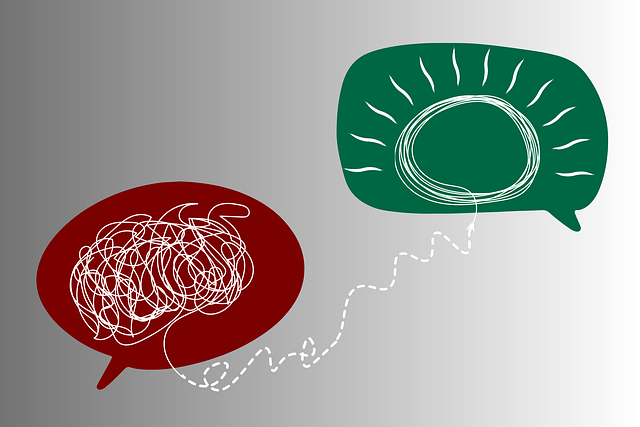Westminster Couples Counseling Therapy emphasizes proactive mood regulation through detailed journaling, tracking apps, and risk assessments, enabling individuals to anticipate emotional shifts for better mental health. They offer tailored strategies like mindfulness, coaching programs, self-care encouragement, regular exercise, adequate sleep, and engaging hobbies. Their evidence-based practices, including CBT and behavioral activation, empower clients with tools for stress reduction, emotional intelligence, effective communication, conflict resolution, and coping mechanisms to enhance overall well-being in a safe, supportive environment.
Mood regulation is a vital skill, enabling us to navigate life’s ups and downs. This article explores strategies for managing moods effectively. We delve into ‘Understanding Mood Regulation’ by identifying triggers and patterns, offering practical tools from Westminster Couples Counseling Therapy for daily mood management. Additionally, we discuss professional support and therapeutic approaches for long-term mood regulation, providing a comprehensive guide to achieving emotional well-being.
- Understanding Mood Regulation: Identifying Triggers and Patterns
- Strategies for Daily Mood Management: Tools from Westminster Couples Counseling Therapy
- Professional Support: Navigating Therapeutic Approaches for Long-Term Mood Regulation
Understanding Mood Regulation: Identifying Triggers and Patterns

Understanding mood regulation involves a deep dive into identifying triggers and patterns that influence our emotional states. Westminster Couples Counseling Therapy emphasizes the importance of recognizing these cues, as they can vary greatly from person to person. By keeping detailed journals or using tracking apps, individuals can gain insights into what sparks positive or negative moods, helping them anticipate and prepare for potential emotional shifts. This proactive approach is crucial in managing mental health, especially when coupled with effective communication strategies.
For instance, a risk assessment for mental health professionals might uncover specific communication patterns that trigger distress in certain clients. Recognizing these can foster more empathetic interactions, leading to enhanced self-awareness exercises both within the therapeutic setting and outside of it. Through such practices, individuals and therapists alike can navigate emotional landscapes with greater clarity and resilience, ultimately promoting healthier mood regulation.
Strategies for Daily Mood Management: Tools from Westminster Couples Counseling Therapy

At Westminster Couples Counseling Therapy, we understand that managing one’s mood on a daily basis is a crucial aspect of maintaining mental wellness. Our experienced therapists offer a range of strategies tailored to help individuals and couples navigate emotional challenges and foster a sense of balance. One effective approach is incorporating mindfulness practices into daily routines. This involves being fully present in the moment, observing thoughts and feelings without judgment, and cultivating gratitude.
Additionally, our Mental Wellness Coaching Programs Development focuses on building resilience by teaching clients coping mechanisms to manage stress and difficult emotions. We also emphasize the importance of self-care, encouraging regular exercise, adequate sleep, and engaging in hobbies that promote relaxation and emotional healing processes. Through these tools and techniques, Westminster Couples Counseling Therapy guides individuals towards a more stable and positive mood regulation, enhancing their overall quality of life.
Professional Support: Navigating Therapeutic Approaches for Long-Term Mood Regulation

Professional support plays a pivotal role in long-term mood regulation, offering individuals and couples valuable tools to navigate emotional challenges. Westminster Couples Counseling Therapy provides a safe space for exploration and growth, empowering clients to understand their unique emotional landscapes. Therapists employ diverse approaches tailored to individual needs, focusing on evidence-based techniques such as cognitive-behavioral therapy (CBT) to challenge negative thought patterns and behavioral activation to promote positive routines.
By integrating stress reduction methods, inner strength development, and emotional intelligence training, these therapeutic interventions foster resilience and adaptability. Couples can learn effective communication strategies, conflict resolution skills, and coping mechanisms to manage stress and enhance overall well-being. This comprehensive approach ensures that individuals and partnerships gain the necessary tools to maintain stable moods and thrive in their personal and shared lives.
Mood regulation is a multifaceted process, requiring both personal insight and professional guidance. By understanding one’s triggers and patterns through strategies like those offered by Westminster Couples Counseling Therapy, individuals can effectively manage daily moods. For long-term regulation, exploring therapeutic approaches with qualified professionals becomes essential, providing tools to navigate emotional landscapes and foster resilience. Combining these strategies empowers folks to lead more balanced and fulfilling lives.














